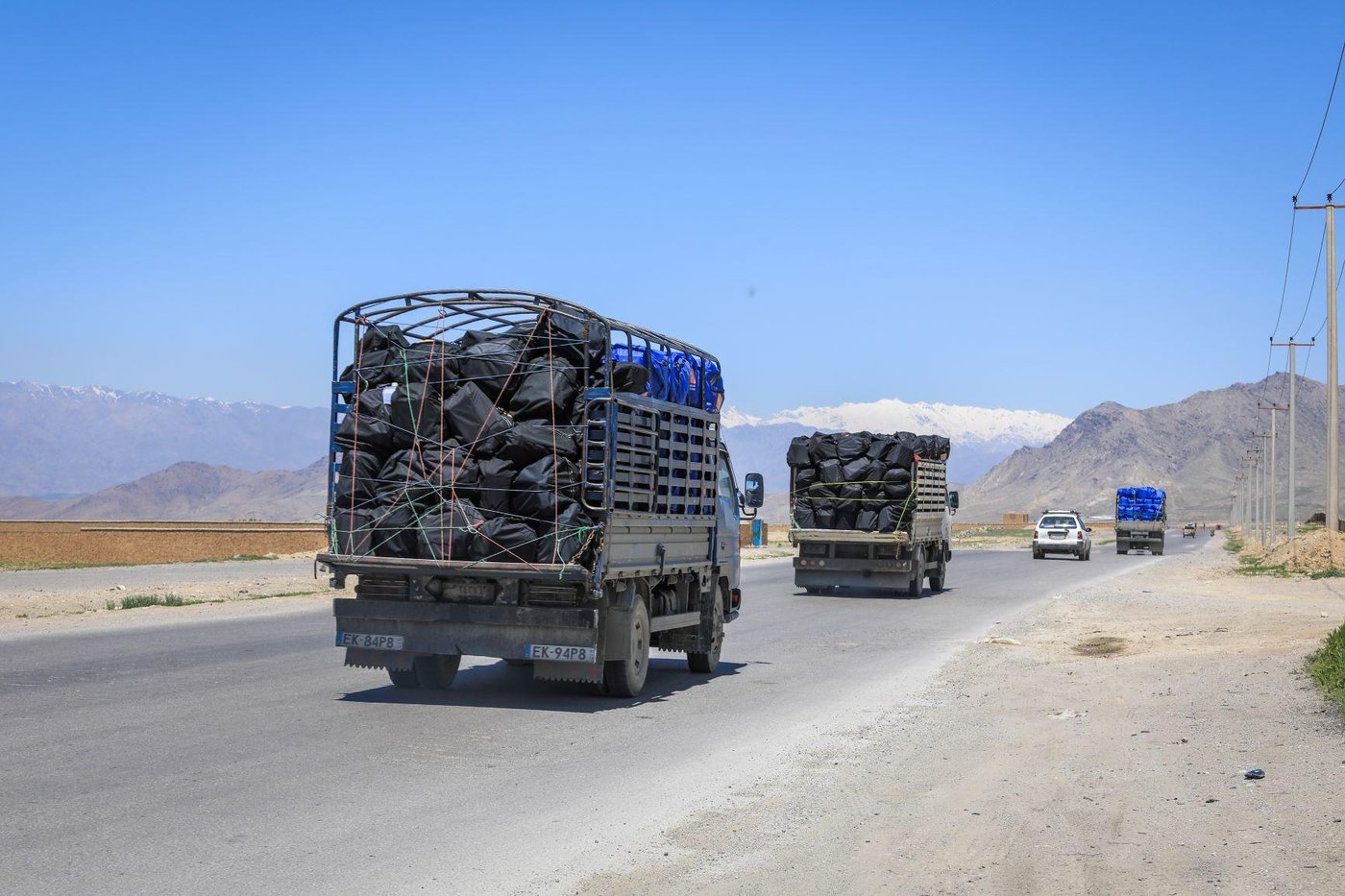A convoy of six vehicles is heading towards Barikab village in Bagram District. Five trucks are fully loaded with soap and hygiene items. Bringing up the rear is a white Toyota Landcruiser bearing NRC’s famous orange logo.
Bagram is an hour’s drive north-west of the capital Kabul. In ancient times, the town was a famous stop on the Silk Road. Today, the area houses thousands of internally displaced families and Afghan refugees who have returned to their homeland.
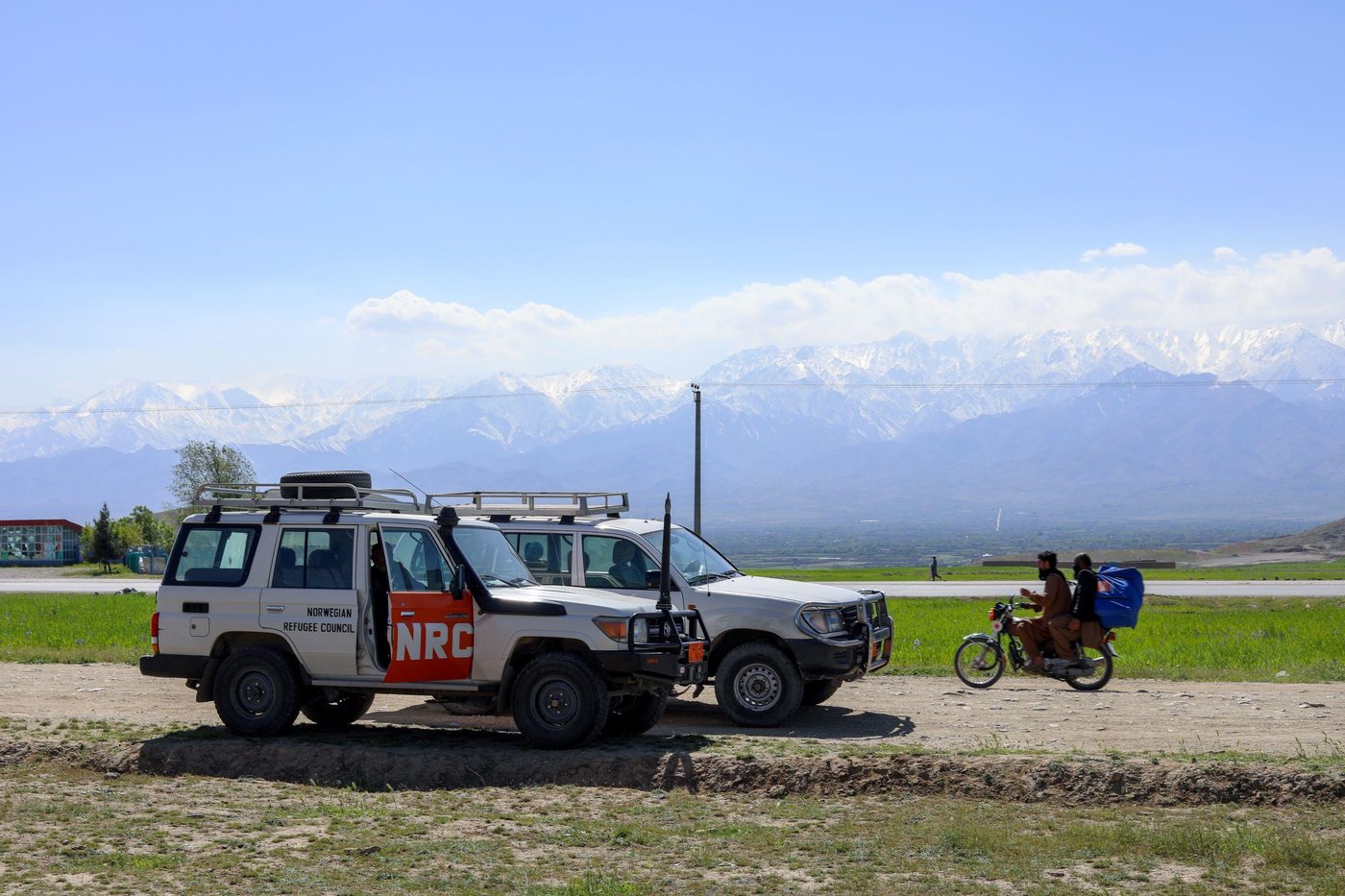
Two-thirds of all those displaced from their home provinces in Afghanistan have sought protection in and around the larger cities. The population of Kabul has tripled in just a couple of decades. Today, between four and five million people live in the capital.
Once in Barikab, NRC’s employees get ready to distribute the items.
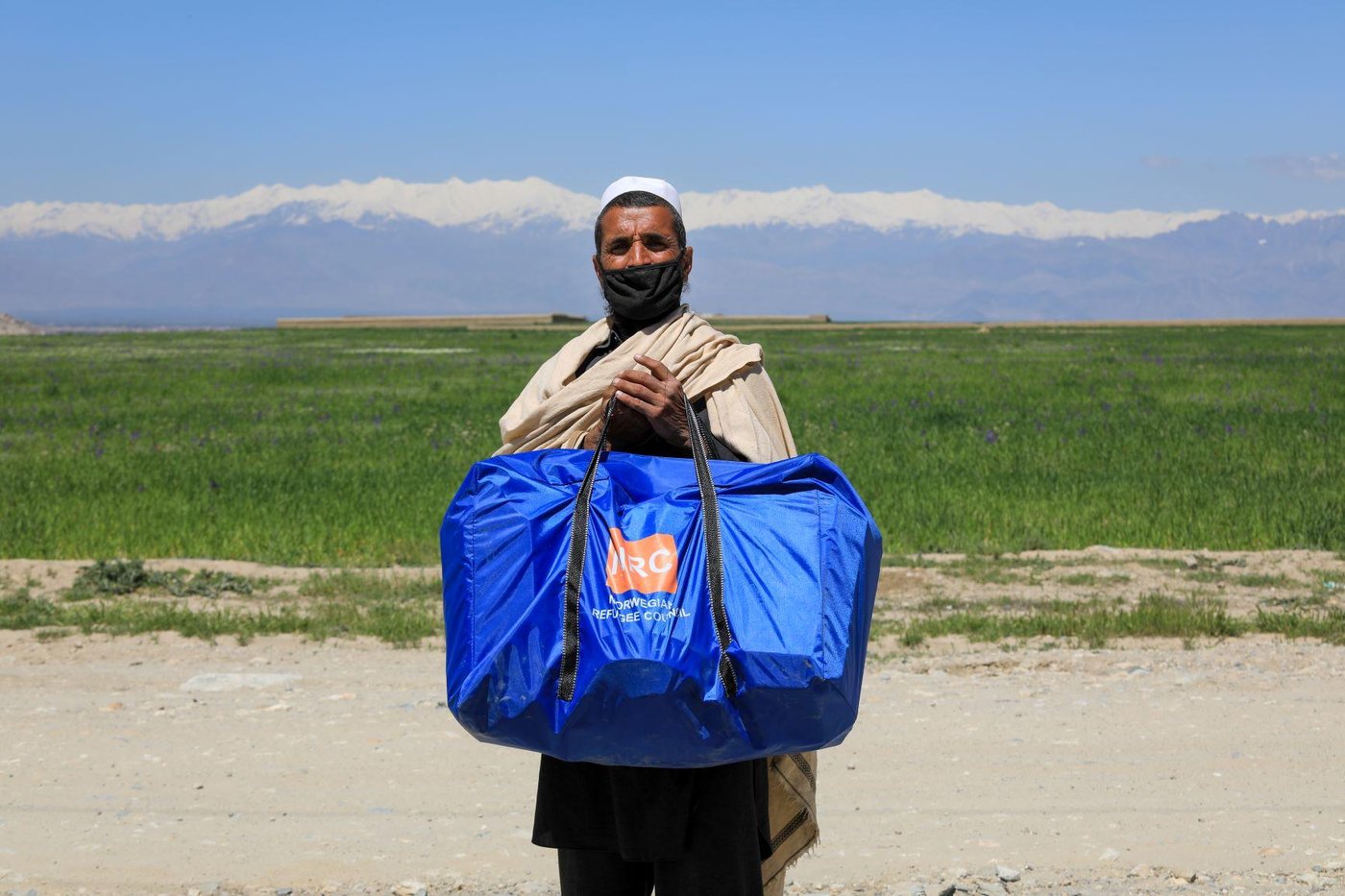
Mohammad Alam, 53, has just picked up a big blue bag of soap and hygiene items. On his head, he wears a traditional white Afghan kufi. Over his nose and mouth, he has a homemade face mask. He has been displaced by war and conflict all his life. Now, it’s coronavirus that he’s trying to protect himself against.
“I was only a child when my family fled to Pakistan from Logar province. About two years ago, after living as refugees in Pakistan for over 40 years, we returned to Afghanistan. It was not safe in our home province of Logar, so we ended up in this settlement for internally displaced people. The cost of living is low here, and we get help from various organisations,” he says.
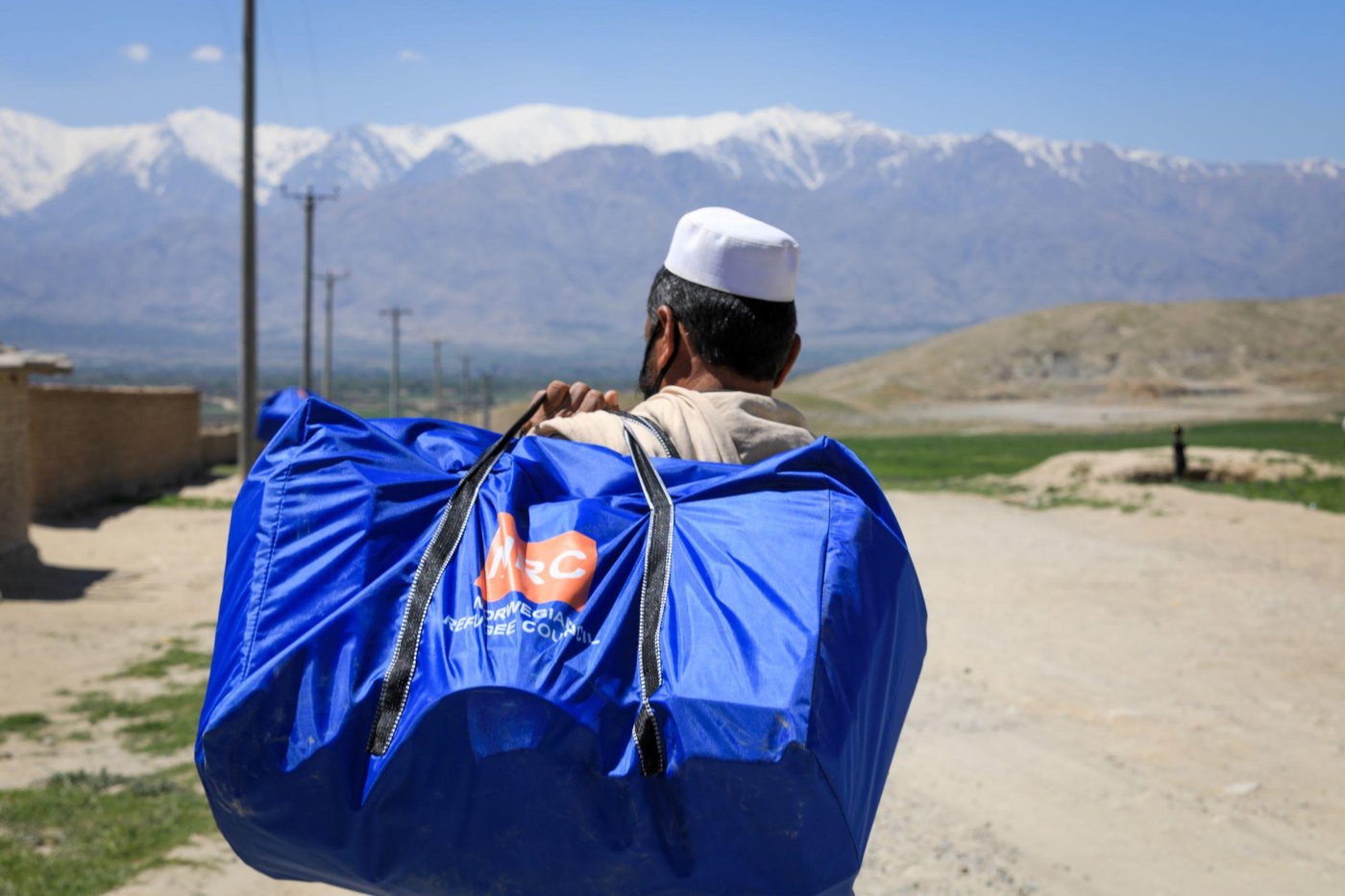
“In the past, we could work and make a little money, but now that the Covid-19 crisis has hit us, we have been forced to stay home. I have 11 family members to support, and now we have run out of food and the children go to bed hungry. It makes us even more vulnerable to diseases.”
Hazrat Ali, 9, adjusts his grip on the wide black straps of the large and heavy bag full of soap and hygiene items. His grandfather, Musa Khan, 70, limps along behind him, with a cane, white turban and traditional white attire. He calls out encouraging words to his grandson.
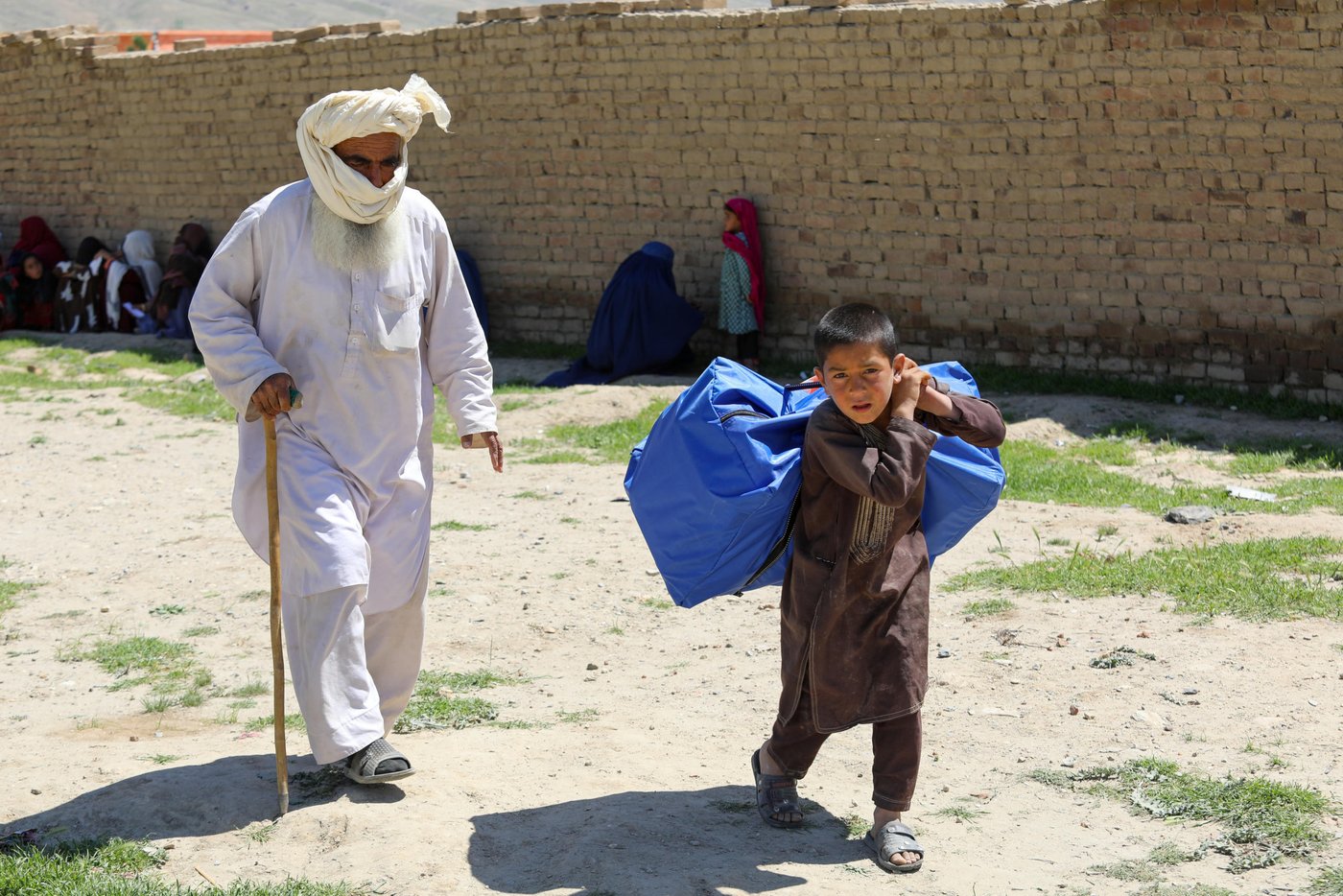
Musa Khan lived as a refugee in neighbouring Pakistan for most of his life.
“Originally, we come from Logar province, in the south of the country, but because of the difficult security situation we cannot return home,” he says.
Now he lives in a small three-room house, which is shared by 15 family members.
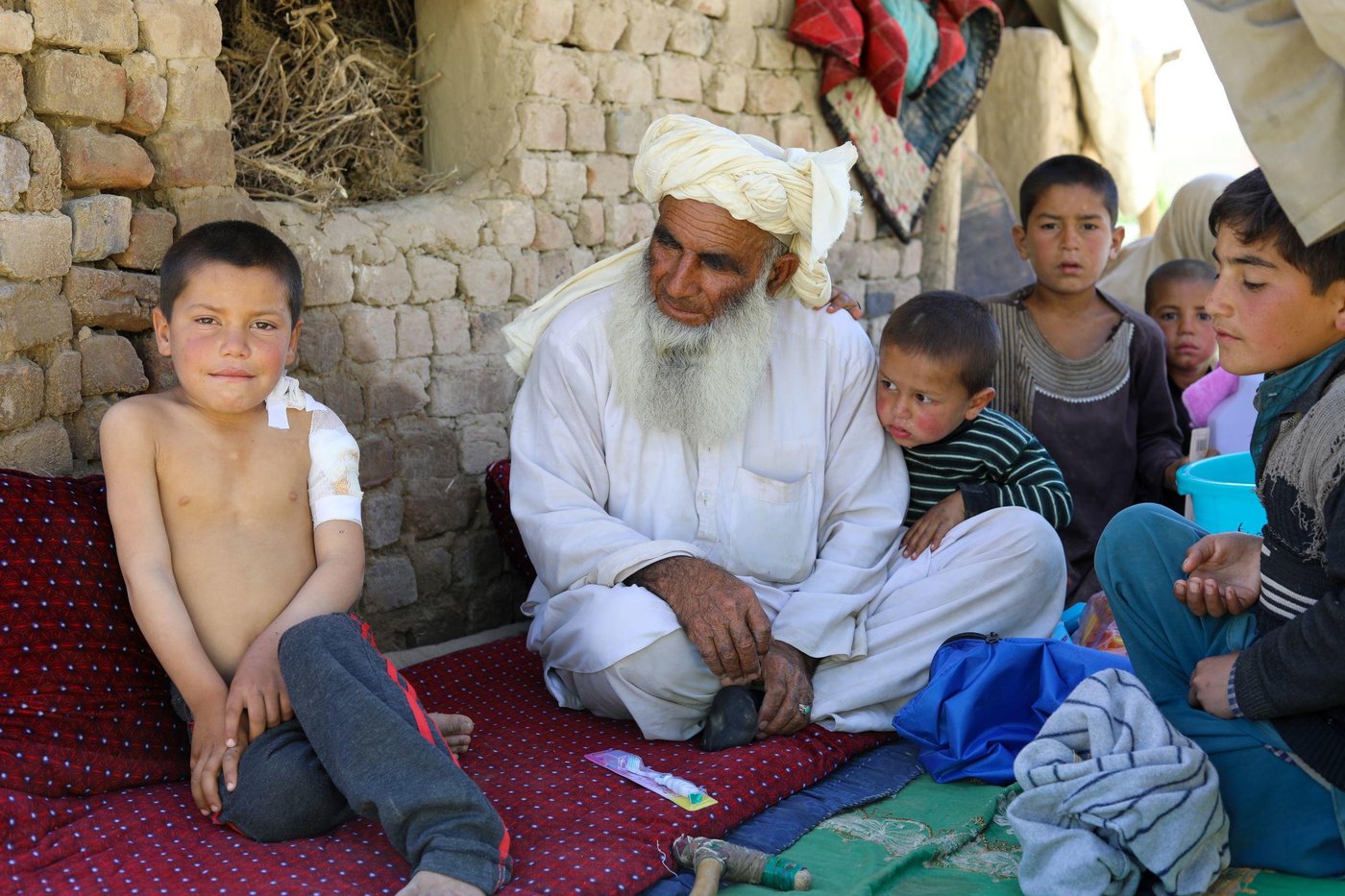
“I have two sons who support all of us. They work as farm workers and earn up to USD 2 a day. It’s just enough for bread and some vegetables. Due to coronavirus and travel restrictions, they can no longer go to work and make money. Now, we’re living on credit and the adults have reduced their meals so that the children won’t starve.”
Musa says that the children in the family collect scrap to sell, but a few days before NRC visited, his grandson, Hazrat Omar, 6, received minor injuries from an explosive he found in a field. His friend Saied, 10, was less fortunate. He lost his entire hand in the accident.
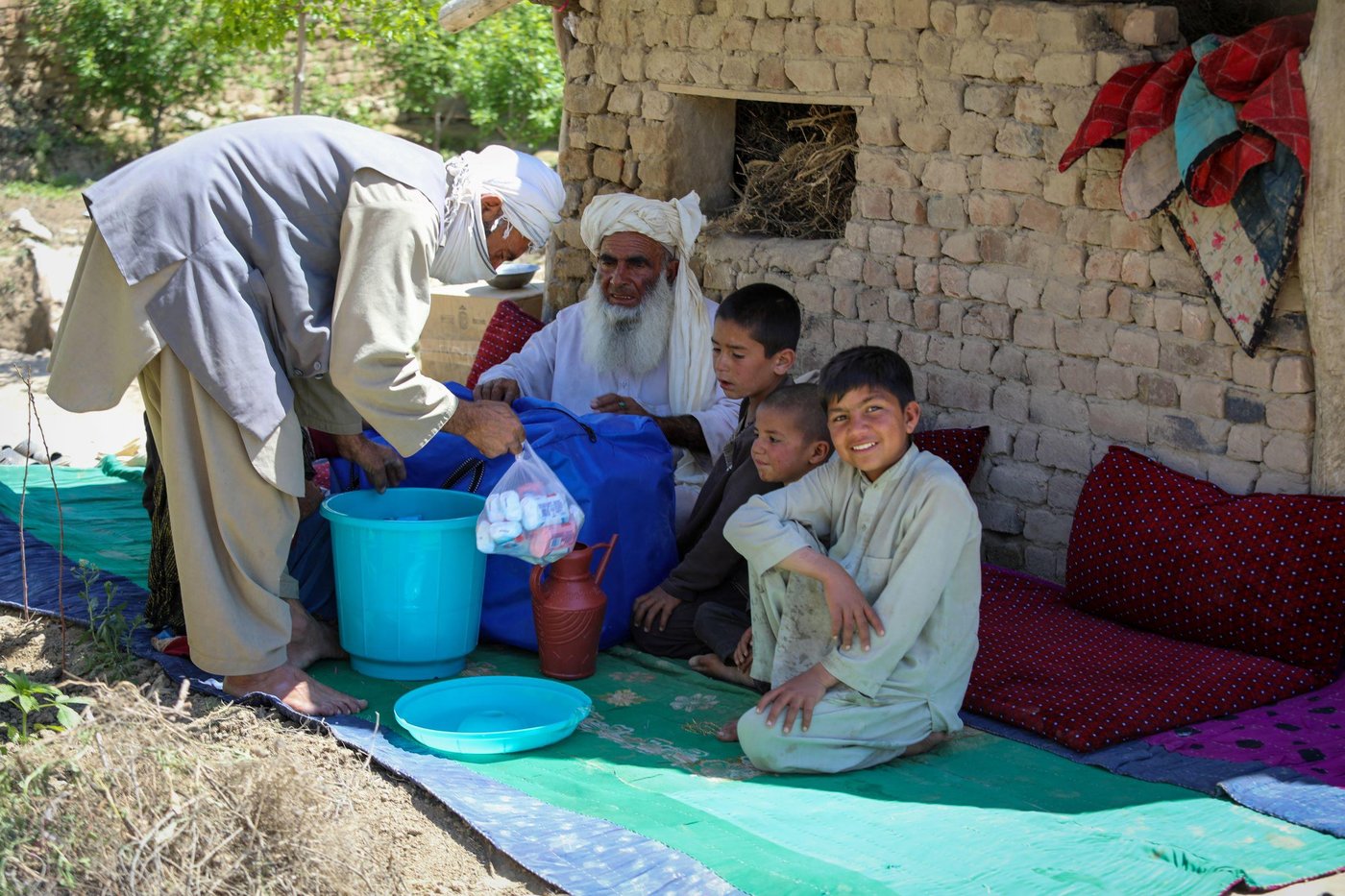
Musa says that he closely follows the news and has learned that the virus is spreading in the country, and that good hand hygiene is important to prevent or limit the spread.
“That’s why it’s good that you give us soap and cleaning agents, something we haven’t been able to afford to buy before. We used to just wash our hands in dirt and ash.”
He also heard that it is a good idea to eat fruits and vegetables. “We should eat lemons, kiwis and oranges to protect ourselves, but we hardly have enough money for bread. I hope we can also receive help to get more to eat.”
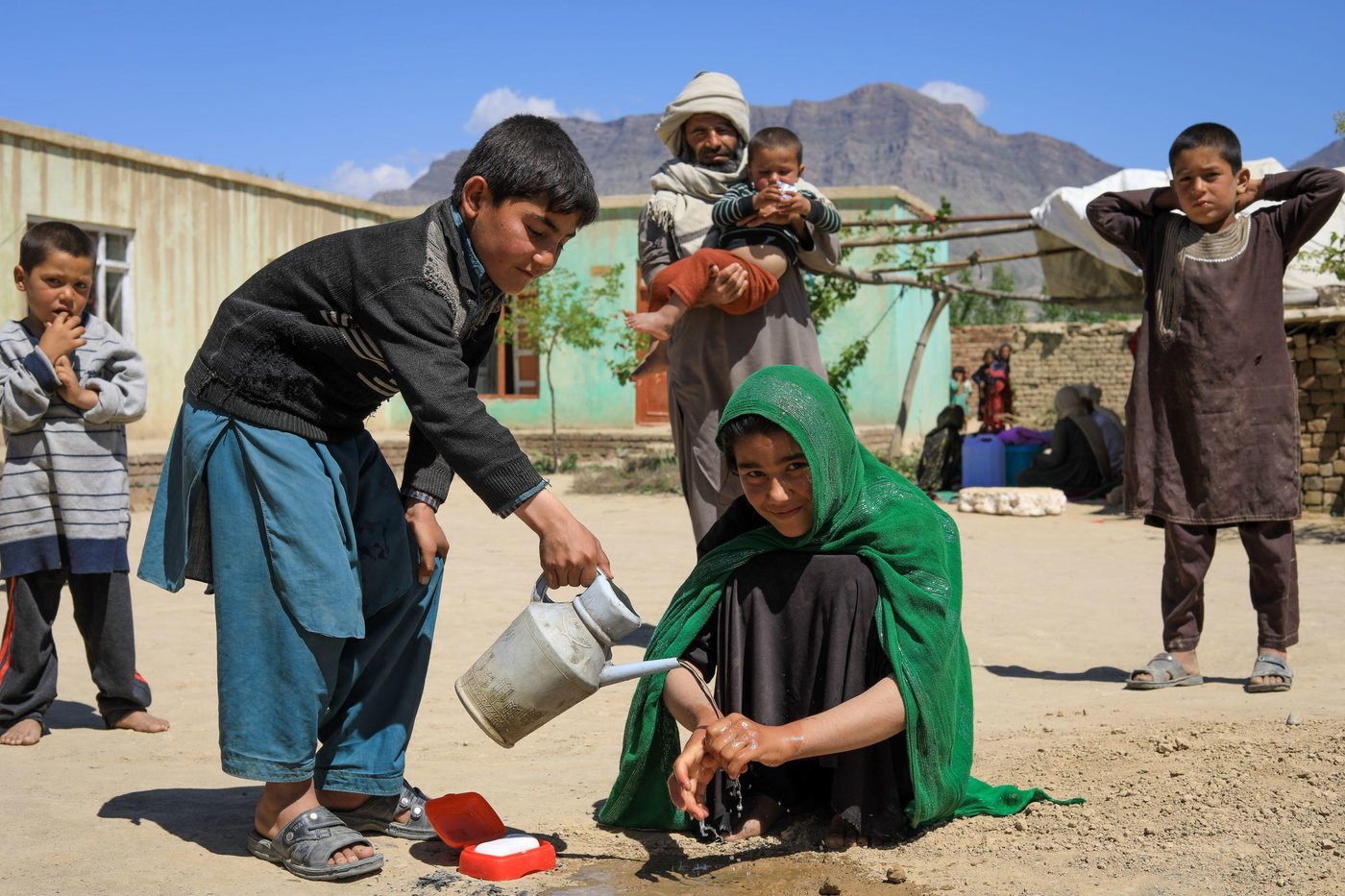
Marzia, 11, went with her father to retrieve the bag of emergency aid. Now she’s outside her house, washing her hands with soap, something she hasn’t been able to do for a long time. Her cousin Dilawar, 9, helps out. Among the hygiene items the family received are soap, toothbrushes and toothpaste, towels and washcloths and scrubbing brushes.
One of the boys who was injured by an explosive while collecting firewood was Mariza’s brother. The accident has made Mariza afraid to go out to collect firewood and she is looking forward to the school opening again.
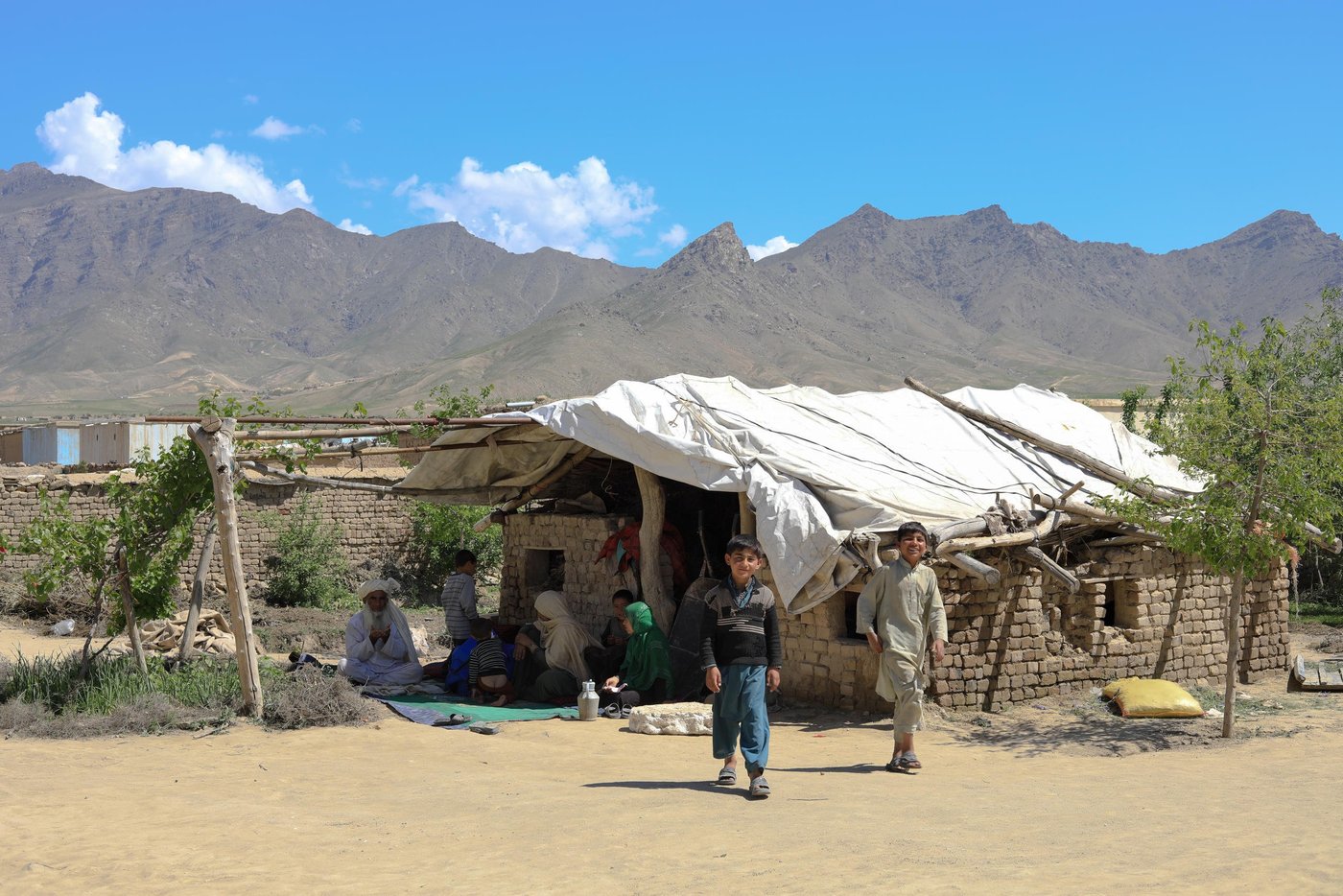
“I miss school. We can’t go out to play either. We used to go up the mountainsides to gather firewood once a day. Now that there are no other ways to make money, we have to go out to collect firewood twice a day. But after my brother was hurt in the accident, I’m afraid to go out to the fields and up the mountainsides. It could have been me who was hurt by that bomb,” she says.
The trucks are empty. New families have received soap and hygiene items that will make them better able to protect themselves against Covid-19, which affects most those who have least.


